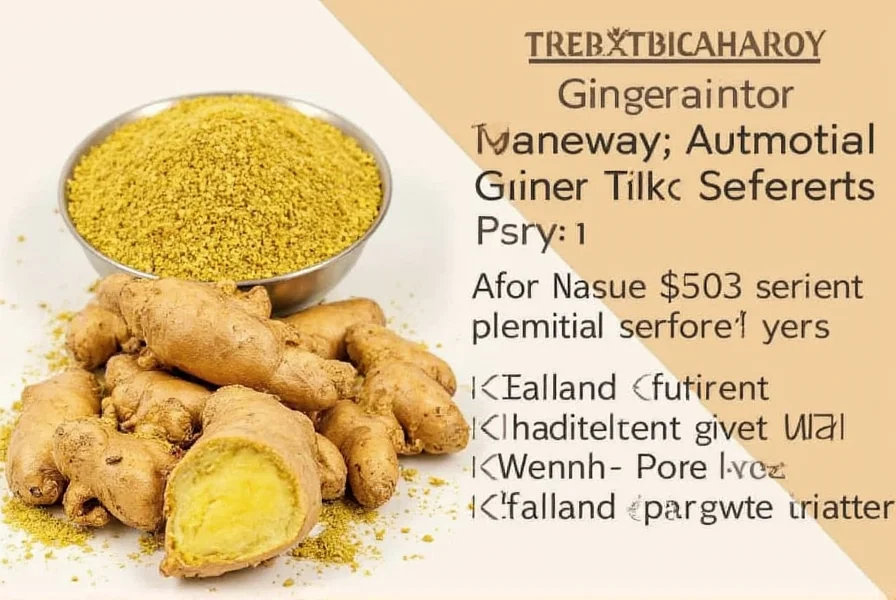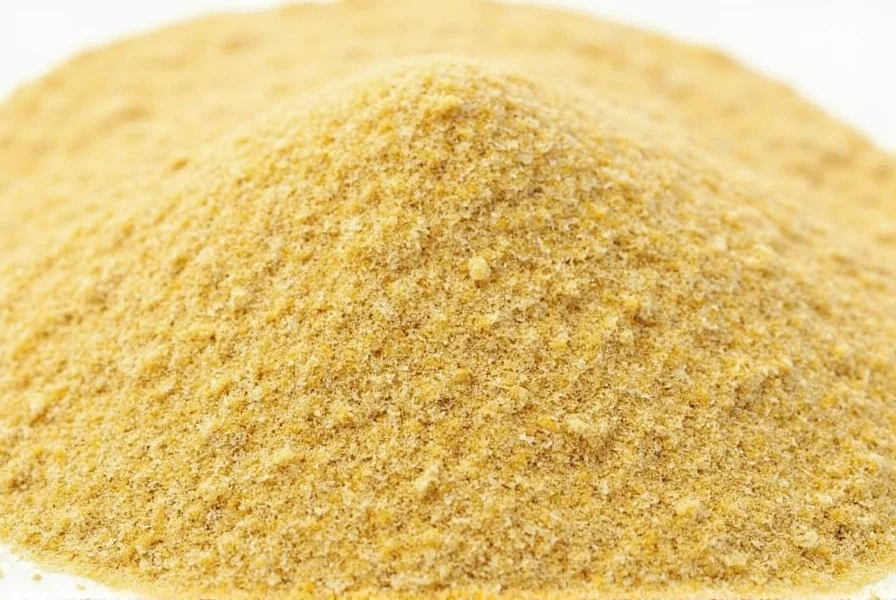Understanding what constitutes a quality ginger mix helps both home cooks and professional chefs maximize flavor potential in their creations. Unlike single-ingredient preparations, ginger mixes offer convenience while delivering complex flavor profiles that would be time-consuming to recreate from scratch. The best ginger mix varieties maintain the distinctive spicy warmth of fresh ginger while balancing it with complementary elements that enhance rather than overpower.
Types of Ginger Mixes and Their Primary Applications
Ginger mixes serve different culinary purposes based on their formulation. Recognizing these variations helps select the right product for specific needs:
| Type | Primary Ingredients | Best Applications |
|---|---|---|
| Beverage Syrups | Ginger, sugar, water, citric acid | Cocktails, mocktails, lemonades |
| Culinary Spice Blends | Dried ginger, garlic, onion, spices | Stir-fries, marinades, sauces |
| Wellness Mixes | Ginger, turmeric, honey, lemon | Teas, immunity shots, health tonics |
| Baking Blends | Ginger, cinnamon, cloves, nutmeg | Gingerbread, cookies, spice cakes |
Key Components of High-Quality Ginger Mixes
The most effective ginger mixes maintain ginger's characteristic pungency while achieving balance with supporting ingredients. When evaluating options, consider these quality indicators:

Real ginger content should appear first in the ingredient list for beverage syrups, while culinary blends benefit from additional aromatics like garlic or onion powder that complement ginger's flavor profile. Natural sweeteners such as cane sugar or honey typically produce better results than artificial alternatives. For wellness-focused ginger lemon honey mix preparations, look for products with minimal processing to preserve ginger's beneficial compounds.
Practical Applications in Daily Cooking and Beverage Preparation
Understanding how to incorporate ginger mix into various preparations maximizes its culinary potential. For cocktail enthusiasts seeking the best ginger mix for cocktails, a 2:1 ratio of mix to spirit creates balanced drinks without overwhelming spice. In savory applications, ginger mix substitutes effectively for fresh ginger at a 1:3 ratio (one teaspoon of mix replaces one tablespoon of freshly grated ginger).
Professional chefs often use ginger mix as a flavor base for quick sauces, adding two tablespoons to pan sauces for Asian-inspired dishes. Home cooks can simplify meal preparation by using ginger mix in marinades—combine with soy sauce and sesame oil for an instant teriyaki-style marinade. When exploring how to use ginger mix in cooking, remember that heat intensity diminishes during cooking, so adding it toward the end preserves more of ginger's distinctive bite.
Creating Your Own Ginger Mix at Home
Homemade ginger mix recipes offer customization while avoiding preservatives found in commercial products. A basic beverage syrup requires equal parts peeled ginger, sugar, and water. Simmer grated ginger in water for 20 minutes, strain, then add sugar and simmer until dissolved. For a ginger turmeric mix variation, add one tablespoon of fresh turmeric per cup of ginger.
Storage considerations significantly impact shelf life of ginger mix. Refrigerate homemade versions in airtight containers for up to two weeks, or freeze in ice cube trays for longer storage. Commercial products typically maintain quality for 6-12 months unopened, but check specific manufacturer recommendations as ginger mix vs fresh ginger preparations have different stability profiles.
Health Considerations and Appropriate Usage
Ginger contains bioactive compounds like gingerol that contribute to its characteristic flavor and potential health benefits. While ginger mix provides convenience, the processing may affect these compounds' concentration. For those interested in ginger lemon honey mix benefits, understand that heating during preparation can reduce certain enzymatic properties, though many beneficial compounds remain stable.
Consumption guidelines suggest 1-2 teaspoons of concentrated ginger mix daily for general wellness purposes, though individual tolerance varies. Those with specific health conditions or taking medications should consult healthcare providers before consuming ginger mix in therapeutic amounts. Remember that while ginger offers potential benefits, it shouldn't replace professional medical advice for health concerns.
Frequently Asked Questions
What's the difference between ginger mix and ginger syrup?
Ginger mix is a broader category that may include syrups but also encompasses dry spice blends and wellness preparations. Ginger syrup specifically refers to a liquid preparation with sugar content typically between 50-65%, designed primarily for beverage applications. The best ginger mix for cocktails usually takes the form of a syrup with balanced sweetness and pronounced ginger flavor.
Can I substitute ginger mix for fresh ginger in recipes?
Yes, but with adjustments. For beverage applications, use 1 teaspoon of ginger mix syrup per 1 tablespoon of fresh ginger juice. In cooking, substitute 1 teaspoon of dry ginger mix for 1 tablespoon of freshly grated ginger. Remember that ginger mix vs fresh ginger has different potency levels, so start with less and adjust to taste, particularly with spicy varieties.
How long does homemade ginger mix last in the refrigerator?
Properly stored in an airtight container, homemade ginger mix maintains quality for 10-14 days in the refrigerator. Signs of spoilage include cloudiness, mold, or off odors. For extended shelf life of ginger mix, freeze in ice cube trays then transfer to freezer bags—this preserves quality for up to 3 months. Commercial products typically last 6-12 months unopened but check specific manufacturer guidelines.
What are the primary benefits of ginger turmeric mix?
Ginger turmeric mix combines the anti-inflammatory properties of both spices, potentially supporting joint health and digestion. The compounds in ginger (gingerols) and turmeric (curcumin) work synergistically, with black pepper often added to enhance absorption. For those exploring ginger lemon honey mix benefits, this combination offers additional antioxidant properties, though individual responses vary and should complement—not replace—professional healthcare.











 浙公网安备
33010002000092号
浙公网安备
33010002000092号 浙B2-20120091-4
浙B2-20120091-4